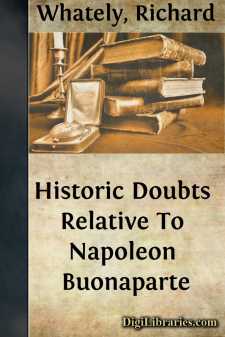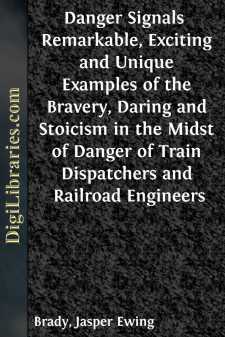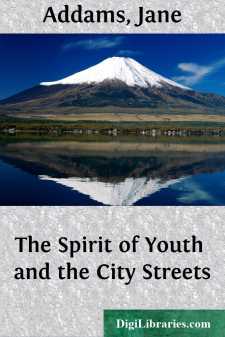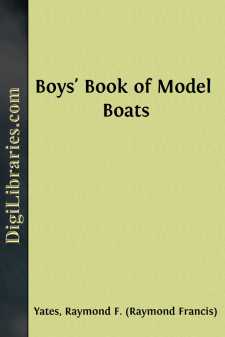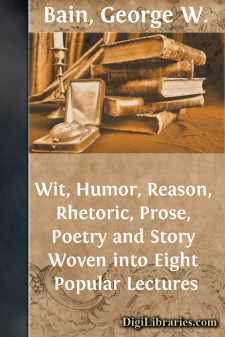Non-Classifiable
- Non-Classifiable 1768
Non-Classifiable Books
Sort by:
by:
Richard Whately
HISTORIC DOUBTSRELATIVE TONAPOLEON BUONAPARTE. Long as the public attention has been occupied by the extraordinary personage from whose ambition we are supposed to have so narrowly escaped, the subject seems to have lost scarcely anything of its interest. We are still occupied in recounting the exploits, discussing the character, inquiring into the present situation, and even conjecturing as to the...
more...
I. On Girls "A Pearl, A Girl."-Browning There are of course, girls and girls; yet at heart they are pretty much alike. In age, naturally, they differ wildly. But this is a thorny subject. Suffice it to say that all men love all girls-the maid of sweet sixteen equally with the maid of untold age. * * * There is something exasperatingly something-or-otherish about girls. And they know it—which...
more...
THE STOLEN TREASURE There is a certain little girl who sometimes tries to find out when I am not over busy, so that she may ask me to tell her a story. She is kind enough to say that she likes my stories, and this so flatters my vanity that I like nothing better than telling them to her. One reason why she likes them, I suspect, is that they are not really my stories at all, the most of them. They are...
more...
THE INITIATIVE AND REFERENDUM IN SWITZERLAND. Democratic versus Representative Government. There is a radical difference between a democracy and a representative government. In a democracy, the citizens themselves make the law and superintend its administration; in a representative government, the citizens empower legislators and executive officers to make the law and to carry it out. Under a...
more...
JIM WAINRIGHT'S KID As I put down my name and the number of the crack engine of America—as well as the imprint of a greasy thumb—on the register of our roundhouse last Saturday night, the foreman borrowed a chew of my fireman's fine-cut, and said to me: "John, that old feller that's putting on the new injectors wants to see you." "What does he want, Jack?" said I....
more...
I INTRODUCTION It has frequently been said that desertion is the poor man's divorce but, like many epigrams, this one hardly stands the test of experience. When examined closely it is neither illuminating nor, if the testimony of social case workers can be accepted, is it true. It is true, of course, that many of the causes of domestic infelicity which lead to divorce among the well-to-do may...
more...
by:
Jane Addams
CHAPTER I YOUTH IN THE CITY Nothing is more certain than that each generation longs for a reassurance as to the value and charm of life, and is secretly afraid lest it lose its sense of the youth of the earth. This is doubtless one reason why it so passionately cherishes its poets and artists who have been able to explore for themselves and to reveal to others the perpetual springs of life's...
more...
WHY A BOAT FLOATSBEFORE taking up the construction of any of the model power boats described in this book, it will be well for the young boat-builder to become acquainted with such terms as buoyancy, displacement, center of gravity, etc. Knowledge of these subjects is more or less necessary if successful boats are to be made. Aside from this, they are terms that every boy who claims an interest in...
more...
CHAPTER I. ON HEALING BY ESCHAR. Having been led, by several circumstances, to try the effects of the Lunar Caustic in the treatment of Wounds and Ulcers, and having great reason, from these trials, to think that this remedy may be used with much advantage far more extensively than has hitherto been done, I lay the results of my experience before my medical brethren. A very natural mode of healing...
more...
by:
George W. Bain
I AMONG THE MASSES, OR TRAITS OF CHARACTER. Whatever criticism I choose to make on human character, I hope to soften the criticism with the "milk of human kindness." As rude rough rocks on mountain peaks wear button-hole bouquets so there are intervening traits in the rudest human character, which, if the clouds could only part, would show out in redeeming beauty. To begin with, I believe...
more...


